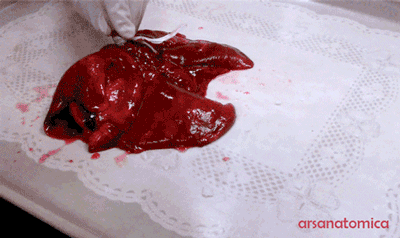Ask Ethan #77: Humans in the vacuum of space
Will you explode, freeze, or boil? Advice on how to maximize your life.
“A vacuum is a hell of a lot better than some of the stuff that nature replaces it with.” –Tennessee Williams
There are a lot of things we take for granted here on Earth, and one of them is our atmosphere. Not only does it provide us with the oxygen our bodies need to survive, but it extends upwards for some 100 km (62 miles), all pulled down by the gravity of Earth, providing 100,000 Pascals (15.2 pounds-per-square-inch) of pressure everywhere on our bodies. In addition, it also exchanges heat with us, via astronomical numbers of collisions between the air molecules and the molecules in our body.

So what would happen if we took all of that away? This week, I received a slew of your questions and suggestions, but one stood out, from Kerrie Pinkney, who wants to know:
[W]ill you explode if exposed to the vacuum of space? I’ve gone down the “water boils in a vacuum then freezes” road, others have gone down the “tried it on a dog and it lived” approach. The movie Gravity shows buddy lifting his helmet and instantly freezing so… how does it work, Ethan?
There are a lot of possibilities here, all with good supporting reasons.

Maybe you’d explode, like Richard Branson does when Mike Tyson removes his helmet in Mike Tyson Mysteries’ episode Heavyweight Champion of the Moon. The logic is similar to Kerrie’s intuition: that with the incredible pressure drop, we know that water in space will boil first (and then freeze), and so perhaps the fact that your body is some 70% water will lead to an explosive death.

There’s also the Total Recall option: perhaps the drop in pressure outside your body — combined with the normal pressure inside your body — would cause your insides to get pushed outwards?


Or perhaps, like in the aforementioned Gravity or Mission to Mars, you would simply freeze instantly, as the vacuum of space would simply cause your external layers to freeze over, as the frost penetrated you all the way down to your core?
Perhaps, even, there would be other physical options at play, ones that haven’t been properly addressed in popular treatments? Exposure to the vacuum of space — particularly a rapid transition from a normally-pressured environment to a near-total vacuum — would be very, very different from what we normally experience here on Earth. Let’s find out what the science says!


The first thing I want you to consider is your balloon-like lungs, and one of the simplest laws you learn in chemistry: Boyle’s law. Boyle’s law tells you that, most other things (like temperature and mass) being equal, if you drop the pressure of a system, its volume increases. If you drop it by a factor of two, the volume doubles; if you drop it by a factor of ten, the volume increases ten-fold.
So if you’ve got air in your lungs, and you drop the external pressure by a factor of, oh, let’s say trillions, your lungs’ volume is going to try and increase by a factor of trillions. This is bad! If you transitioned from a normal pressure environment to a (near-)total vacuum in less than around 0.5 seconds, there wouldn’t be enough time for the air to escape from your lungs smoothly. Instead, it would be as if a bomb went off inside your lungs, a phenomenon known as explosive decompression. The risk of lung trauma is very high, and death could be both very quick and painful. It wouldn’t appear spectacular to an onlooker, but would be a catastrophe to a person experiencing it.
But let’s assume that either you decompressed your lungs slowly enough — perhaps by breathing out completely as decompression occurred — or that you were lucky enough to escape with only minor trauma. What would you have to worry about next?
Perhaps, just like a weather balloon that rises to super-high altitudes (achieving super-low-pressures outside it), the human body itself won’t be able to withstand the vacuum of space. While it’s true that if you went from a large pressure — something like deep-sea pressures — all the way to a vacuum very rapidly, you may suffer from ruptures, a drop of “only” one atmosphere, even from one to zero, will do no more than cause minor swelling. So the “Richard Branson” or “Total Recall” options, above, aren’t going to get you. The human skin is a lot hardier than a weather balloon.



And of the other options, although you will freeze eventually, it takes a long time. Things only freeze on Earth quickly if you’ve got something very cold in contact with the substance you’re cooling; in the vacuum of space, all you’ve got is the ability of your body to radiate its own heat away. At the same time, you’re still actually generating your own heat from the inside. You’d freeze to death a lot more quickly in water that was only 22° C (40° F) colder than your body temperature than you would in the vacuum of space!
So, to start with, Kerrie, you, your friends and the movies are all wrong! Assuming you don’t get a burst lung from rapid decompression, what are you actually in for? It isn’t pretty, and after you get the real description, perhaps you’ll understand why spacewalks are pretty much always done with astronauts in pairs.

Without oxygen (or anything) in your lungs — which you need to do in order to survive — the human body starts to experience a condition known as hypoxia very rapidly. With the insufficient supply of oxygen to your body’s tissues, you’ve only got about 10-to-14 seconds before you lose consciousness. You’ll still have the energy to move your muscles and accomplish tasks for a short while, which typically isn’t enough time to restore airflow and get back to a pressurized, oxygenated environment.
Your body will start to expand to a greater volume during this time, but a more severe symptom that you’ll start to experience is circulatory failure, which occurs around 30 seconds after decompression, and general flaccid paralysis, where the muscles of your body become unable to contract. From this point, you’ve got about another 60 seconds for someone else to get your body to a pressurized, oxygen-rich environment. If you can do that, all the symptoms of depressurization are reversible, but if not, cell damage and death is permanent.
Oddly enough, perhaps the first film to address this issue — Kubrick’s 2001: A Space Odyssey — was the one that came closest to getting this correct, with the death of Frank Poole.
In real life, there’s only one time that space explorers died in this manner, during the 1971 Soyuz 11 disaster, resulting in the death of three Soviet Cosmonauts: Vladislav Volkov, Georgy Dobrovolsky, and Viktor Patsayev.

If they found your body, you would be limp, flaccid, swollen to perhaps double its normal volume and blue. If enough time had passed — perhaps a few hours — you’d also be frozen solid.
It’s possible for revival to occur in slightly longer timeframes. The 90-second limit seemed to always work for dogs, with blindness and swelling wearing off, and the dogs’ inability to walk returning after around 10-to-15 minutes. Dogs exposed to these conditions for 120 seconds, however, almost always died. Chimpanzees, used in experiments from 1965-to-1967, could survive for up to 3.5 minutes (210 seconds), although one showed permanent brain damage after 3 minutes and another suffered a lethal heart attack during depressurization.
In 1965, a technician at Johnson Space Center was accidentally depressurized, with Scientific American describing the story as follows:
[A] technician inside a vacuum chamber at Johnson Space Center in Houston accidentally depressurized his space suit by disrupting a hose. After 12 to 15 seconds he lost consciousness. He regained it at 27 seconds, after his suit was repressurized to about half that of sea level. The man reported that his last memory before blacking out was of the moisture on his tongue beginning to boil as well as a loss of taste sensation that lingered for four days following the accident, but he was otherwise unharmed.
It’s a terrifying situation to be in, and the key for you — if you’re ever in it — is to expel all the air from your lungs and spend your last 10 seconds of consciousness putting yourself in a position to be rescued. If they can get to you quickly enough and repressurize you, you might come back! Otherwise, the oxygen deprivation will get to you, and — similar to severe carbon monoxide poisoning — death will come to you quickly.
Thanks for a great (if sobering) question, Kerrie, and if you’ve got questions or suggestions for the next Ask Ethan, send them in!
Leave your comments at the Starts With A Bang forum on Scienceblogs!





